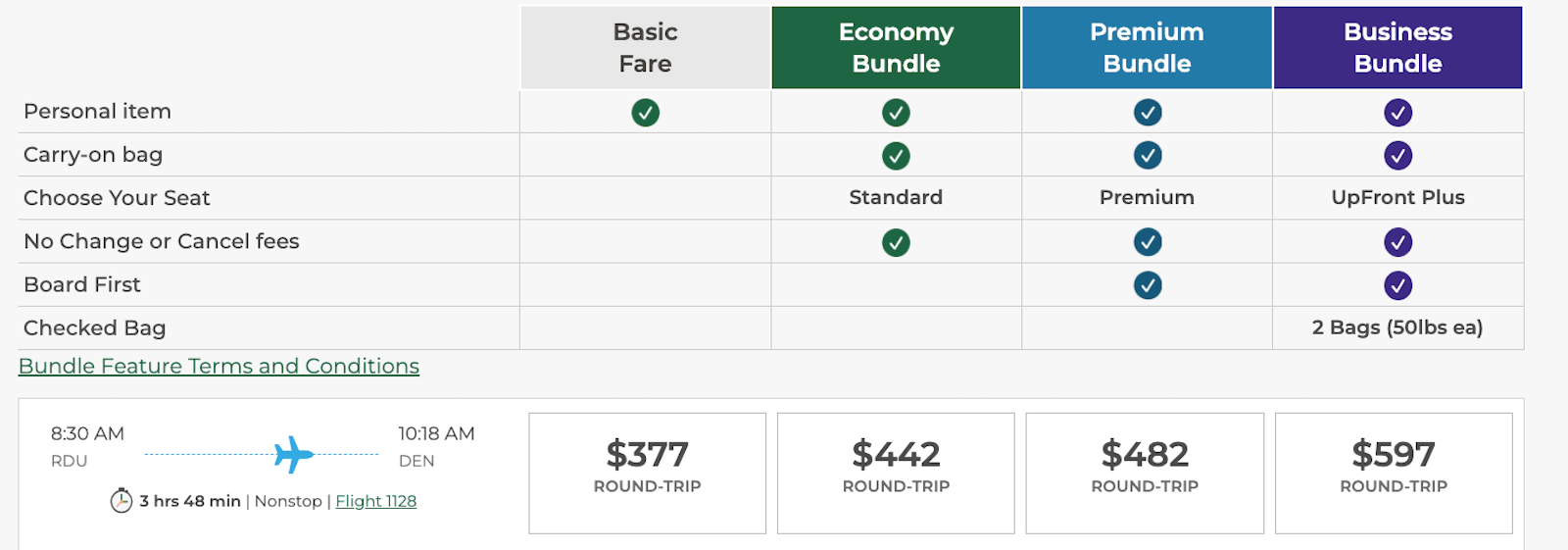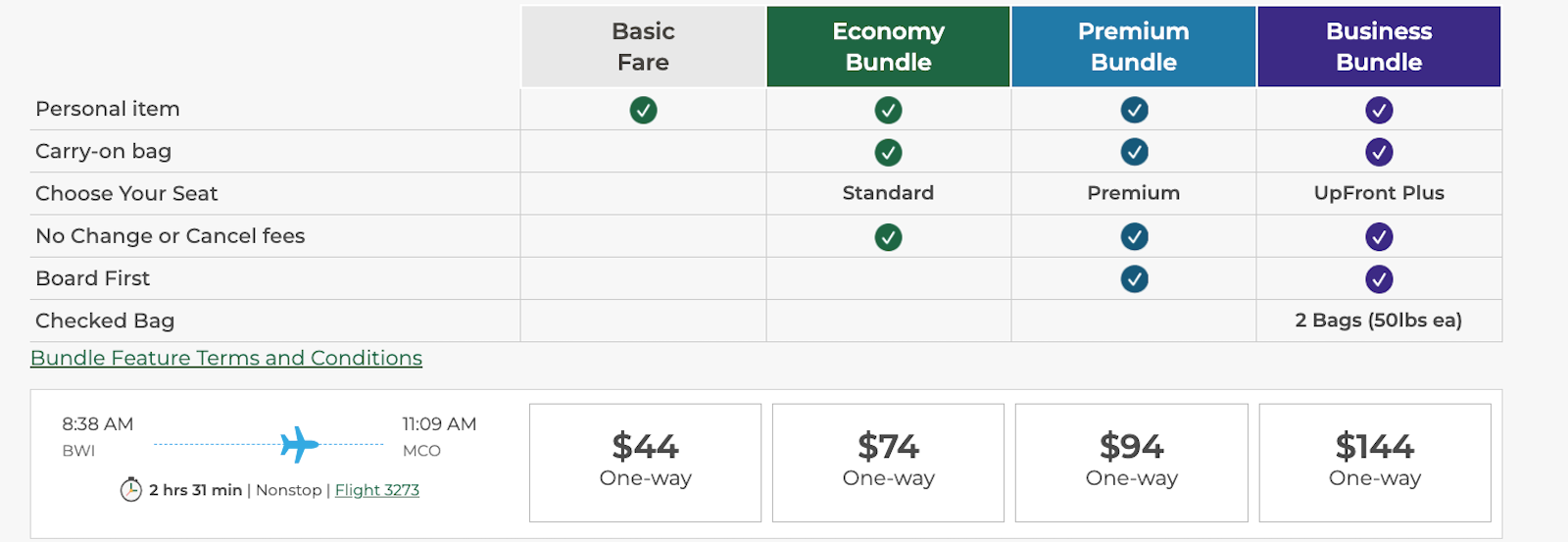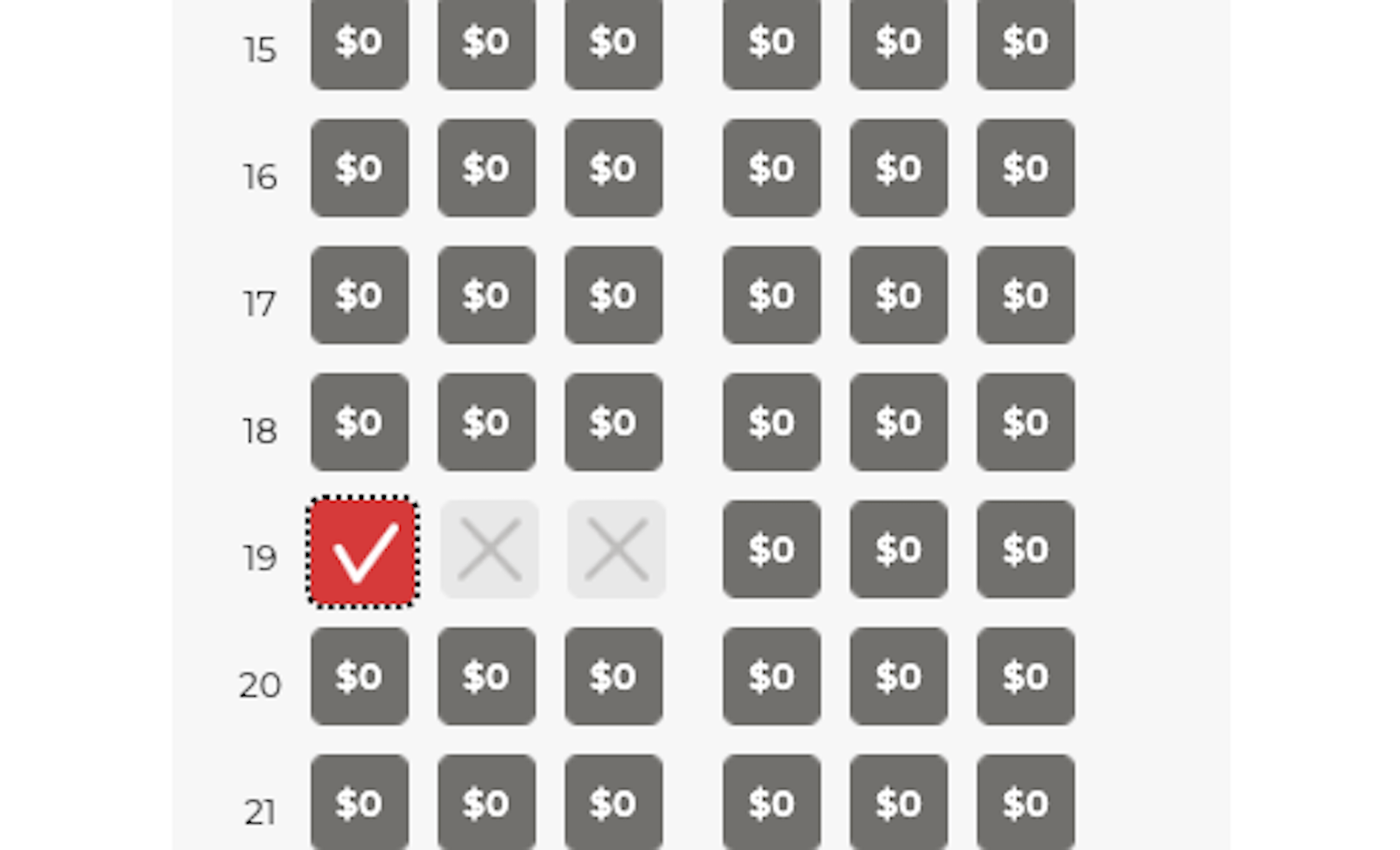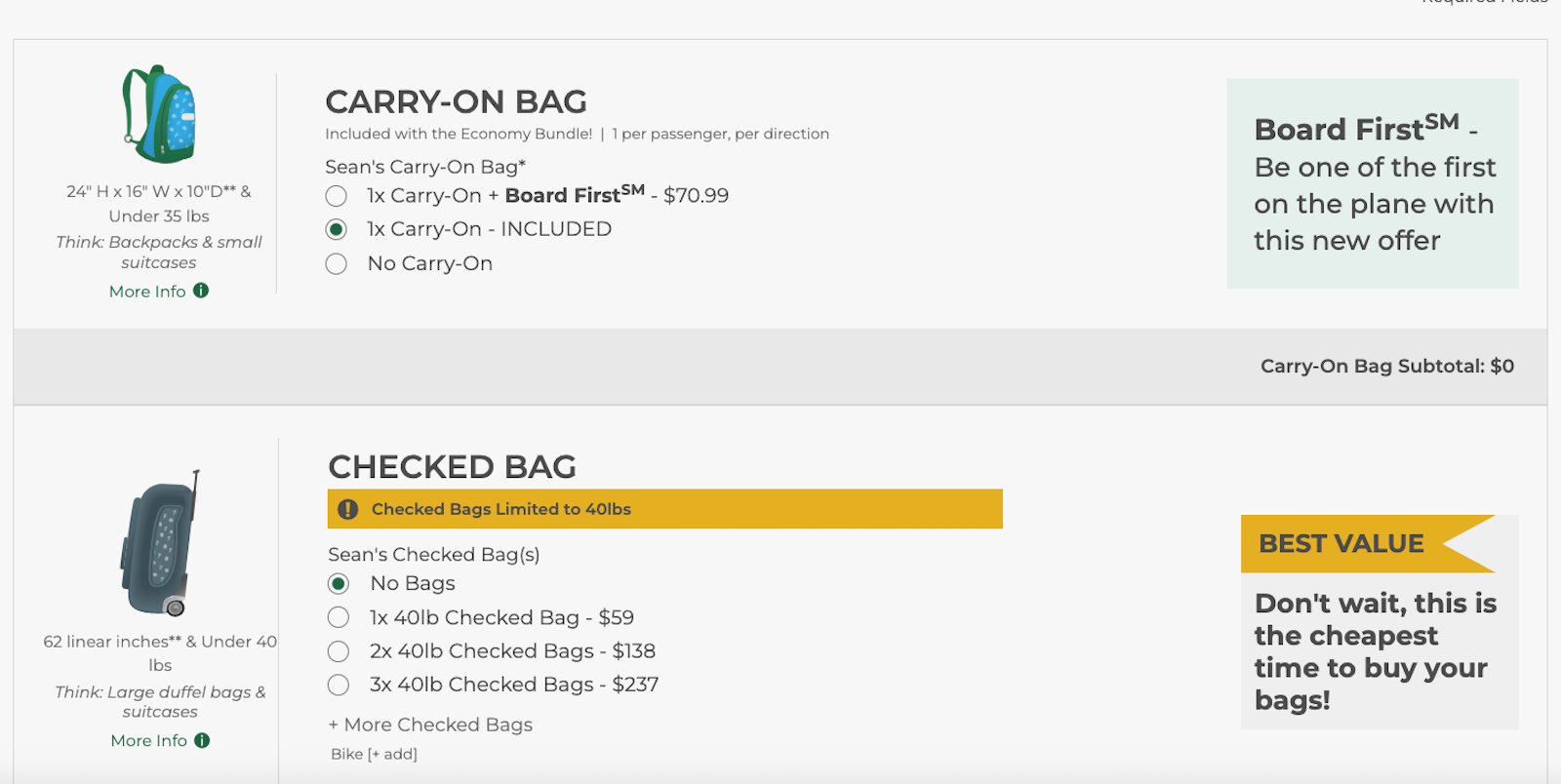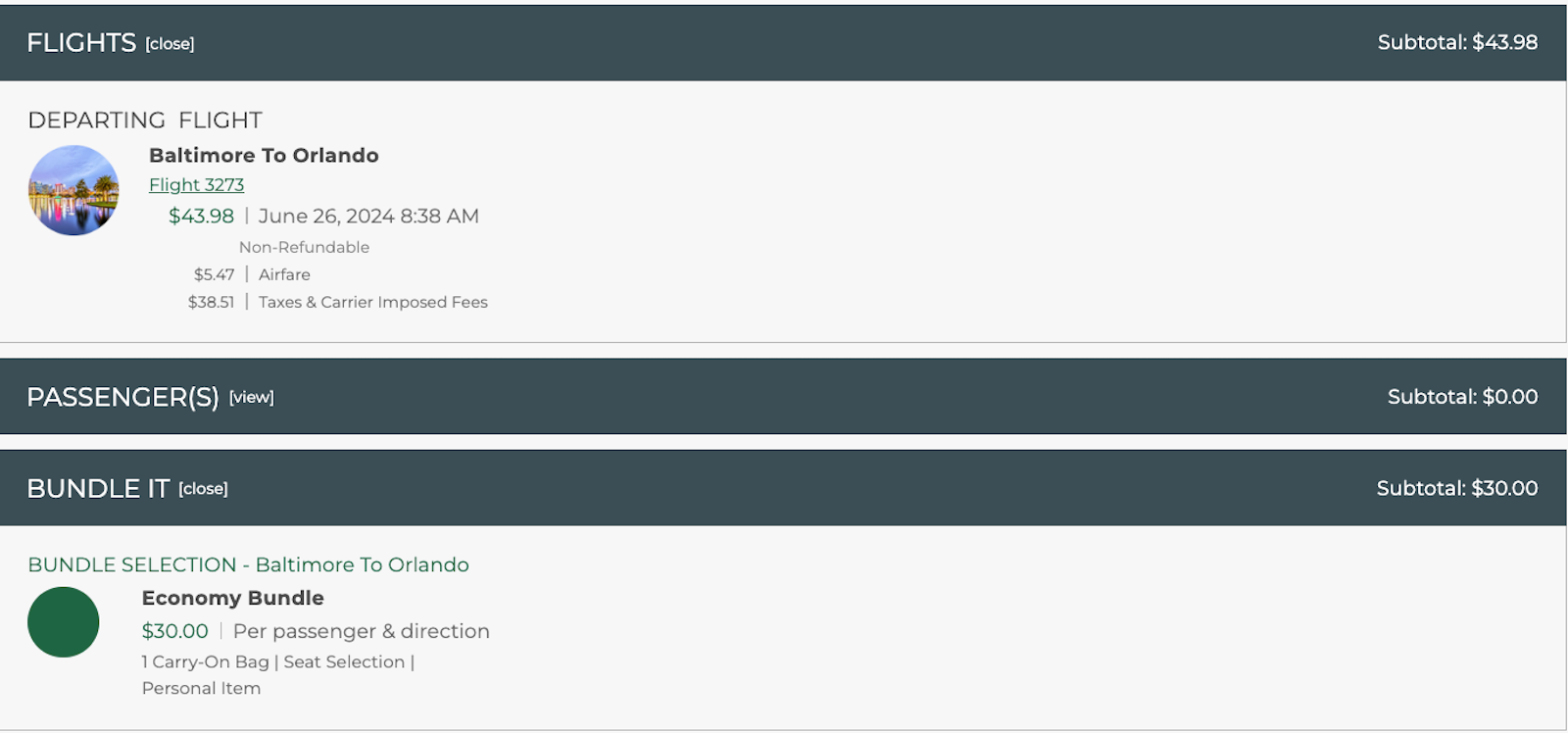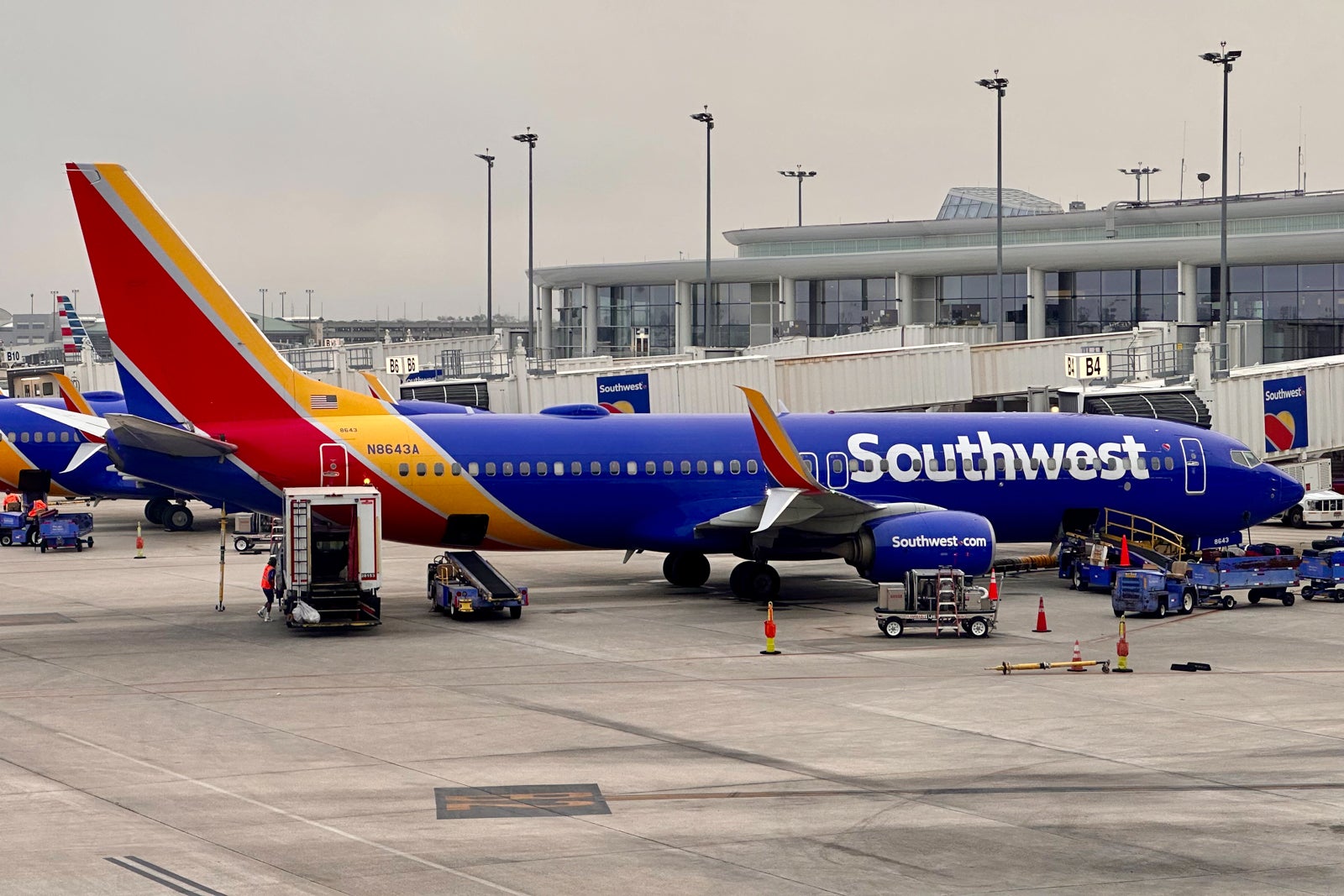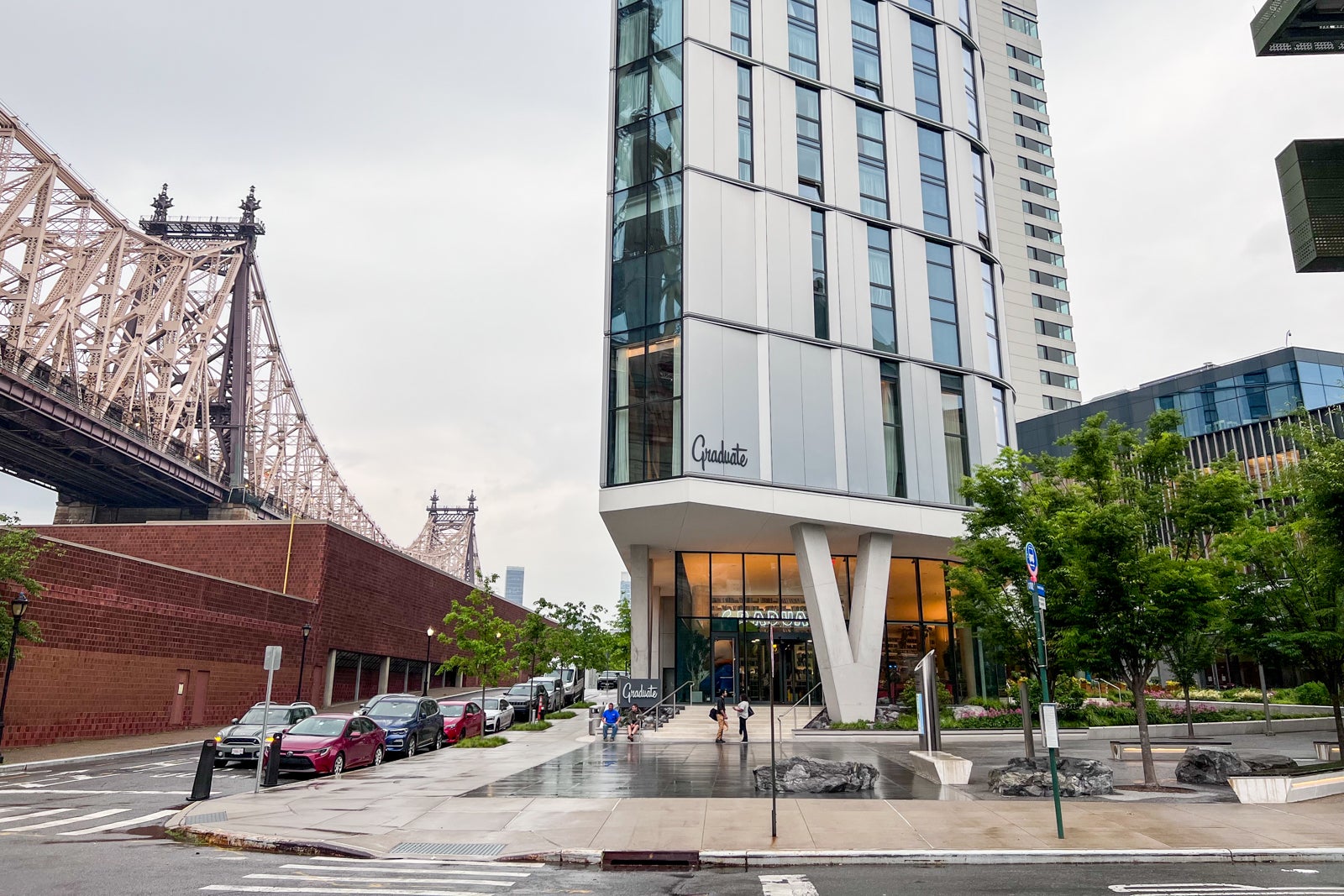Frontier overhauls pricing with four ticket categories
Frontier Airlines is making major changes to how it presents fares and fees, offering a clearer range of ticket types that passengers will see right off the bat when booking a flight.
It’s a move that could mean a very different booking experience for travelers used to the barrage of add-on fees typical of ultra-low-cost carriers in the U.S.
These “sweeping changes,” as Frontier put it in announcing the news Friday, are now live on the airline’s booking channels.
Want more aviation news? Sign up for TPG’s free biweekly Aviation newsletter.
4 booking options
Going forward, Frontier will ostensibly rely less on the classic budget airline business model of displaying an ultra-low base fare upfront — one that excludes everything from seat selection to a full-size carry-on bag, although those types of tickets will still be available.
From the outset of the booking process, Frontier will offer a menu of four options, each with ascending prices and amenities: Basic, Economy, Premium and Business.
This assortment of choices at least sounds more reminiscent of what you’ll find when booking with a larger network carrier. However, keep in mind, Frontier isn’t embarking on a major overhaul of its actual planes; don’t expect a spacious first-class recliner on one of its aircraft anytime soon.
Frontier is also eliminating change and cancellation fees for three of its four new ticket types, bringing back live phone support for customers, and giving customers a longer timeframe to redeem flight credits.
“Today marks the beginning of a new era for Frontier — one with transparency in our prices, no change fees and the lowest total price,” CEO Barry Biffle said in a statement Friday.

Daily Newsletter
Reward your inbox with the TPG Daily newsletter
Join over 700,000 readers for breaking news, in-depth guides and exclusive deals from TPG’s experts
Frontier’s new ticket classes
Here’s the rundown of what you’ll get with each of Frontier’s new ticket types.
| Benefits | Basic fare | Economy Bundle | Premium Bundle | Business Bundle |
|---|---|---|---|---|
| Personal Item | √ | √ | √ | √ |
| Full-size carry-on bag | Costs extra | √ | √ | √ |
| Checked bag | Costs extra | Costs extra | Costs extra | 2 free bags |
| Seat selection | Costs extra | Free standard seat | Free Premium seat (extra legroom) | Free UpFront Plus seat (extra legroom seat, with middle seat blocked) |
| No change or cancellation fees | √ | √ | √ | |
| “Board First” priority boarding | √ | √ |
It’s worth noting, Frontier still classifies the benefits you get with the higher-level (non-basic) fares — like bags and seat selection — as part of a “bundle.”
However, what’s different now is that the airline is advertising the full price of the bundle right off the bat, lumped in with the fare itself — instead of after a traveler selects a base fare.
Today, Frontier customers can pick a fare, and then choose to add on ancillary items a la carte, or as part of a bundle.
Other changes
Frontier announced a few other changes as part of its sweeping moves Friday:
- Customers who receive a flight credit on, or after May 17 will have 12 months (instead of three) to redeem.
- Live phone support will return for customers within 24 hours of their flight, and for those with elite status.
- Customers who find a lower flight price elsewhere will be eligible to receive 2,500 Frontier Miles.
Booking a flight on Frontier
Frontier’s new booking menu is now live on its website. Here’s what it looks like when you go to book — you can see the four options (Basic, Economy, Premium and Business) for this June flight from Raleigh-Durham International Airport (RDU) to Denver International Airport (DEN).
A Basic fare on this one-way flight starts at $181. Think of this as your “traditional” Frontier fare, which only includes the ticket and a personal item. If you want to pick your seat, you’ll have to pay for it (or else the airline will just assign you one closer to departure). The same goes for a full-size carry-on bag. And, there are no free changes.
You’d pay $30 more for the “Economy Bundle” class (which adds seat selection and a carry-on bag). Or $20 beyond that gets you the “Premium Bundle” with an extra legroom seat. And another $50 gets you two free checked bags, and an UpFront Plus seat, with extra legroom and the middle seat blocked as part of the Business Bundle.
Here’s how the fares shake out on an overall cheaper one-way flight from Baltimore/Washington International Thurgood Marshall Airport (BWI) to Orlando International Airport (MCO). Prices start at $44 for a basic ticket, and then climb by the same increments for each class (+$30 for Economy, then another $20 for Premium, then another $50 for Business).
Let’s say I select the $74 Economy fare for this BWI-to-Orlando flight. As you can see, when I get to seat selection, all the standard seats are marked at a cost of $0.
And, when it comes time to select baggage, my full-size carry-on is included (but a checked bag would start at a hefty $59).
Once you go to check out, you’re reminded that the airline is largely changing the presentation of its fares and add-on charges. The $74 Economy fare I selected actually consists of a $43 base fare and $30 in ancillary charges.
What these changes mean for travelers
Frontier’s changes come as the airline has been in search of ways to woo more travelers in recent months in an effort to boost profitability.
The carrier has made immense changes in 2024. It recently launched an overhaul to its Frontier Miles loyalty program.
Frontier also embarked on a significant network shakeup, shifting some attention away from highly competitive leisure travel markets like Orlando and Las Vegas to other parts of the country in hopes of luring travelers flying to visit friends and relatives.
Several other leisure-heavy airlines like JetBlue, Spirit Airlines and Southwest Airlines have also detailed headwinds in recent months, and deployed (or considered) their own sweeping changes, from Southwest executives openly pondering possible new future cabin offerings and JetBlue embarking on its own major network shakeup.
For Frontier’s part, it’s also worth noting, it’s move to display a bundled price upfront comes just weeks after the U.S. Department of Transportation issued a new rule requiring airlines to more clearly display the price of ancillary items right off the bat — when a customer first sees the price of a flight.
Several U.S. airlines – but not Frontier — are currently suing the DOT over that rule, arguing overreach.
Frontier’s new pricing model may not entirely comply with the new regulations, the enforcement of which is slated to begin a little less than a year from now. However, this model would certainly move a bit closer to compliance than the pricing and fee structure the airline has historically used.
Bottom line
Travelers booking a flight on Frontier will certainly notice a new experience, with four distinct pricing categories — each part of a different “bundle” – displayed right off the bat.
Customers who like the stripped-down, unbundled base fare will still be able to purchase such an option through the airline’s lowest, Basic fare category.


